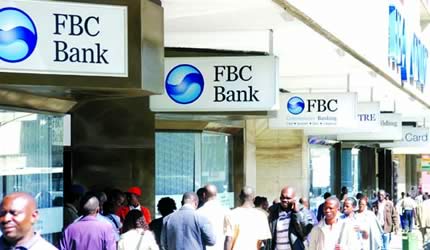From ‘college’ to the field

Fortious Nhambura Senior Features Writer
They have been to “the college” for different crimes, and graduated. They have now set their eyes on transforming their lives so that they become a model of youth in the ‘hood.
Unlike other ex-convicts who have only tested freedom for a few hours, the duo has vowed never again to go to jail.
Stories of convicts like the Bulawayo trio, Nomthandazo Moyo, Elvis Banda and Mandi Mabhena who were nabbed for housebreaking hardly 24 hours after being released from Khami Maximum Prison through a presidential pardon, have been told.
However, Masimba Bvumbe and Onias Mawire have set their eyes on transforming their lives for the better. They have chosen urban agriculture as their way out of poverty and crime and it is promising.
They are now focusing on changing the waste land at the back of the new Braeside Shopping Centre into a lash green vegetable garden.
Their aim is to change the face of backyard agriculture in Harare and promote crime awareness in Zimbabwe.
The two childhood friends share a common feature, being incarcerated.
They also have a passion for agriculture. They are aiming at turning their little garden into a major source of vegetables for residents of Arcadia, Braeside and beyond.
“We have wronged society and it is time we start making sure that we give a worthwhile contribution to society. I lost an opportunity to make it in life and chose crime. For seven years I was incarcerated for armed robbery. I regret what I did and feel I have to do something that young people can emulate.
“I tried this project four years ago just after being released from prison, but I was discouraged by people’s comments. I don’t blame them because society has not been schooled enough to accept and integrate ex-convicts like us. They still look at us with contempt but it is imperative that ex-convicts work a bit harder to get societal expectancy,” he said.
But when Don arrived from the United Kingdom and expressed his wish to venture into full-time agriculture, Onias got an opportunity he wanted to fulfil his dream.
“I talked him into joining me to try our skills on this portion of land that was not only idle but well watered. He agreed and together with three other youths we embarked on this journey. Since May we have been working on this piece of land and the results are there for everyone to see. Sure the club is beginning to make some money from selling vegetables in the ‘hood and motorist driving along this road (Dieppe Road). We can’t complain because business has been good,” Onias said.
From an initial five members, the Bread Basket Project club has recruited three more members and now stands at eight.
The club has cleared nearly a hectare of open land behind the Braeside Sorting Offices and put it under vegetables. Their intention is to continue increasing the area under crop.
To boast their production, the club has acquired a 5Hp water pump and pipes to ease watering of the garden.
Masimba says the Bread Basket Project is a social enterprise that provides communities with cheap, fresh, healthy, sustainably-grown food.
“We achieved this by acquiring disused arable public land, servicing it, and starting up organic market gardening projects, creating employment and educating urban youths on the therapeutic joys and economic benefits of farming.”
It has however not been smooth sailing but they are determined to realise their goal to green the area and eke out an honest living. Saving a dollar after the other, they have managed to acquire seed, fertiliser, tools and the water pump.
“We started using cans but soon realised that we could not cope with the amount of watering required manually. As such we have managed to acquire a water pump and pipes to carry the water to vegetable beds.
“Water is not a problem as the garden is situated on a vlei. We have sunk a deep well and with those I am sure we can water our crops all year round. We have no need of council water,” said Masimba.
He said the project was part of their crime awareness campaign.
“It is important for people to know that crime has a lot of consequences and one of them is even when you are released from of prison you suffer resentment from the community. The prison managed to break the criminal element in me and taught me to use my hands to fend for myself.
“Crime does not pay but actually brings shame to you and those whom you love most. Imagine the torture that your family (parents, wife or children) experiences as they are always taunted for your transgressions?
“What one needs to know is that it is difficult to get fully integrated into the community after prison as most people still associate you with the past. We have managed to outgrow that but I tell you it is painful.
“It is easy to hear someone call you robber even when you have fully reformed. Every time I heard that I made a resolve to make sure young people in the neighbourhood do not follow my steps,” adds Onias with resolve.
In November last year, together with a friend Farai Bhumani, the trio launched a music group called Bantu Express that released a single Kuchema Kwamabhanditi which they are using as a theme song. Soon they expect to do their second single “Zvanaka”.
The tale of Onias and friends is an example of the Zimbabwe Prison Services succeeding in their goal of rehabilitating convicts while preparing them for life after prison.
On release from prison, Onias was reformed and a born-again Christian. To underline his new found religion, Onias began an evangelist cycle tour, cycling to Chinhoyi and Marondera preaching the gospel of reformation and peace.
In the past Zimbabwe’s correctional services have been described as archaic, thus becoming a conduit of hard core criminals. But a recent focus has seen the Zimbabwe prison services turning towards increased correctional and rehabilitation of offenders.
Onias says of ZPS, “I want to thank the prison services for teaching us to use our hands during our time in prison. They have taught me that crime does not pay and one needs to use his hands and brains to make a living. I chose agriculture and was trained in the art that is why I am practicing it.”
In a recent interview, Zimbabwe Prisons and Correctional Services spokesperson Chief Superintendent Elizabeth Banda said they were training inmates in various entrepreneurial skills to ensure they had a better life after serving their terms.
“We may be affected by what may have happened in the past but I assure you that we are doing our best to make sure that offenders are reformed. However, like any organisation, our greatest handicap is lack of funding,” she said.
Feedback [email protected]









Comments